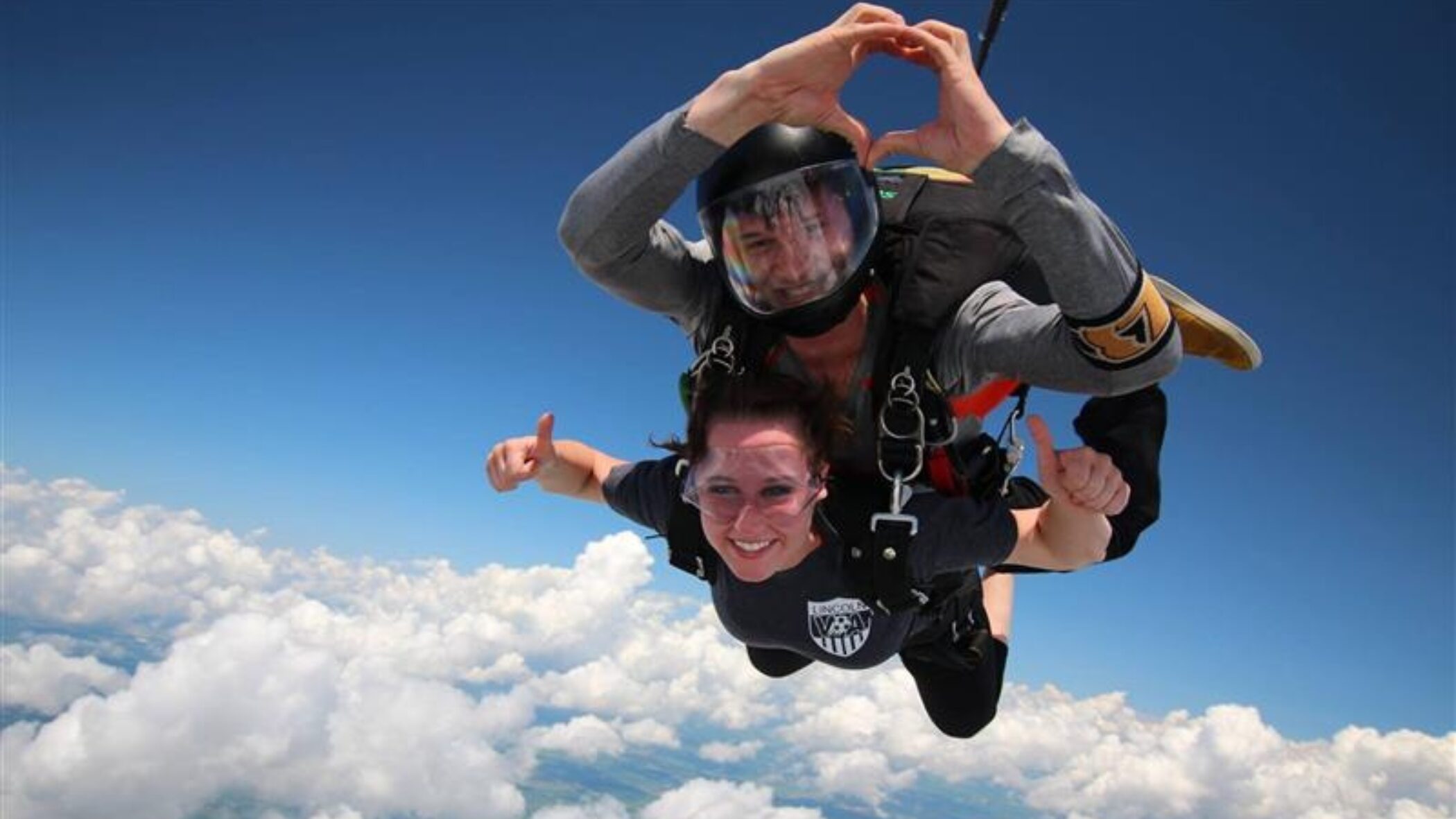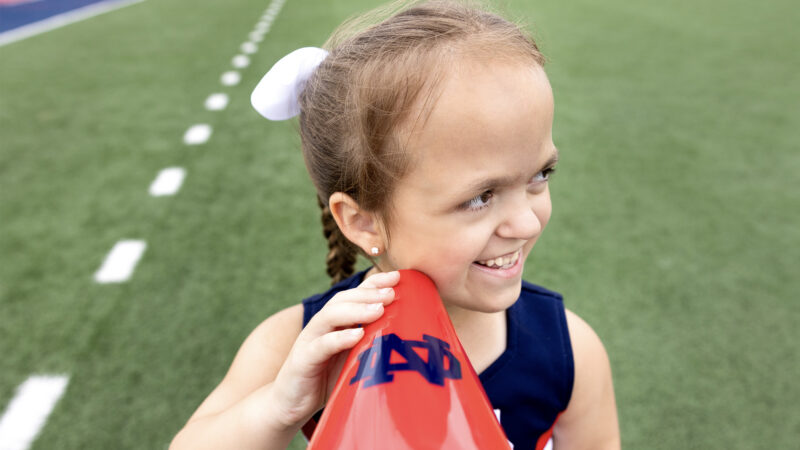Pushing the Boundaries of Living with PKU: Karlye’s Story
June 27, 2025
Karlye Vonderwell often thinks of a moment several years ago that crystallized her appreciation for the tremendous progress the phenylketonuria community has seen during her lifetime.
Karlye was in high school and had just returned to her southern Indiana hometown after having participated in a language immersion program in France. She got a cold and went to get checked out by a doctor in the small, rural town whom she had not seen before. During the visit, Karlye mentioned that she was living with phenylketonuria (PKU), a rare genetic condition that prevents the body from breaking down an amino acid called phenylalanine (Phe) found in all foods with protein.
“He was floored that I had just come back from studying abroad, that I was active in sports and theater, and that I was thriving in school while living with PKU,” recalls Karlye. “My generation owes a lot to the advocates and researchers who have increased our collective understanding of PKU and opened up a whole new world of possibilities for our community. My life could have been very different if I had been born only a few years earlier.”
Karlye joined us for our Rare Disease Day event at our San Rafael headquarters earlier this year, sharing her perspective and experience with our employees and touring our laboratories. Read below to learn more about what Karlye shared about growing up with PKU, managing the condition amid a demanding career and starting her next chapter with high hopes for the future.
“My generation owes a lot to the advocates and researchers who have increased our collective understanding of PKU and opened up a whole new world of possibilities for our community. My life could have been very different if I had been born only a few years earlier.”
What was your experience growing up with PKU?
I was diagnosed with the newborn screening test, so living with PKU is all I’ve ever known. I’m the youngest of three kids, and in a way I was fortunate in that my oldest brother also has PKU. When I was born, my parents had a better handle on how to support a child with PKU, and growing up, I always had someone to look to, who knew what I was going through. We could commiserate together about drinking our nutritional formula, or celebrate together when we found delicious new foods that fit our diet. It was really interesting – our middle brother actually felt like the odd one out because he didn’t have PKU.
The first place I began to feel like I was out of the ordinary was in the lunchroom at school. Everybody wanted to trade foods, and I just couldn’t do that.
How do you manage your PKU in the context of your daily life now as an adult?
I work in a foreign affairs role, so I have the privilege to travel internationally quite often. I feel very fortunate to be in a place in terms of managing my PKU that I can do this successfully. But even for me, like for many living with PKU, there have been times when traveling has been really stressful because I’m off routine, unsure of ingredients or simply unable to find good, low-protein options. As I’ve worked with my care team to keep track of the latest research and guidelines and adjust my treatment plan, this has fortunately become less of a burden over time.
As your treatment plan has evolved and you’ve had the chance to try new foods, what has that experience been like?
As a child I remember when my brother and I both had low-protein eggs for the first time and just looked at each other like “Whoa.” The first time I got to eat bread and chicken was also pretty life-changing! With the amount I travel, I’m trying new foods from different parts of the world all the time now. The best part about getting to try new things is then, that’s one less food to worry about avoiding or severely restricting, which is such a weight off my shoulders.
What comes to mind when you reflect on your past, present and future with PKU and your connection to the community?
Growing up, the primary way my family and I tried to give back to the PKU community was by participating in clinical trials. We tried to be very active in terms of how we could contribute to research and development, and this commitment was also key to how my brother and I evolved our PKU management over the years in consultation with our care teams. Now as an adult, I feel a calling to connect more closely with the PKU community and share my story, so I’m excited about doing more of that in the future.
Given the progress of the past 20-30 years, I can’t wait to see how the broader PKU community continues to push the limits of what is possible to help people with PKU live long, happy, fulfilling lives, with fewer and fewer restrictions.
“Given the progress of the past 20-30 years, I can’t wait to see how the broader PKU community continues to push the limits of what is possible to help people with PKU live long, happy, fulfilling lives, with fewer and fewer restrictions.”



